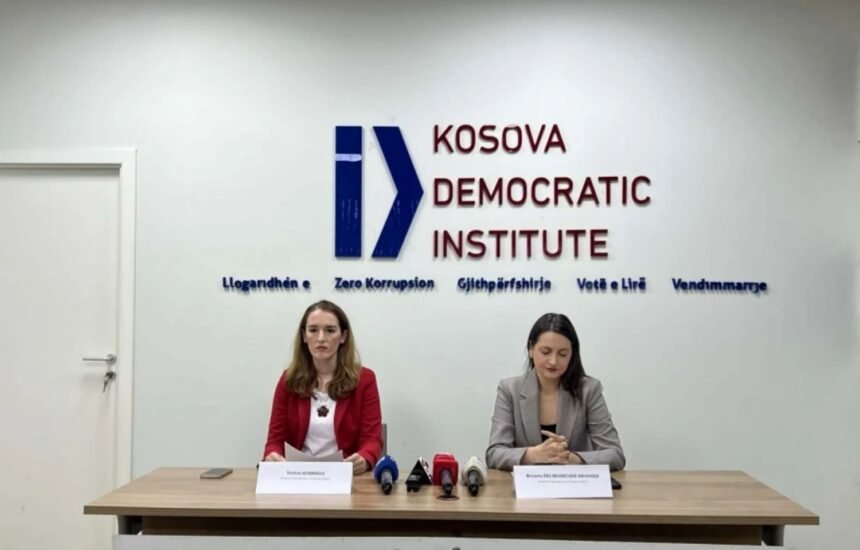Serbia’s Decision to Distribute Funds to Serbs in Kosovo: Electoral Interference
Pristina, Kosovo – The electoral campaign in Kosovo has been marked by an increasingly hostile discourse, according to the Democracy in Action (DnV) coalition of non-governmental organizations. The coalition has expressed concern over Serbia’s decision to distribute €170 each to around 5,000 Serbs in Kosovo, which they see as direct interference in Kosovo’s electoral process.
Violeta Haxholli, a representative from DnV, stated that this financial assistance is being used as a tool to influence the Serb community’s voting behavior. “This decision by the Serbian government to provide financial aid to Kosovo Serbs is a clear attempt to manipulate the voters’ will by using financial assistance as a means to sway their choices,” Haxholli said at a press conference.
Hate Speech on the Rise During Campaign
Haxholli also noted a disturbing increase in hate speech during the second week of the election campaign. “The use of inciteful and hateful language continues to grow. We’ve documented 62 instances of such language during campaign events,” she explained. The political parties Vetëvendosje, LDK, AAK, and Nisma, followed by PDK, have been the most frequent offenders of this trend.
Political Activities and Campaign Events
Regarding the campaign activities, Haxholli mentioned that the political parties have largely maintained a calm atmosphere during the second week of the campaign. LDK has been the most active, followed by PDK, Vetëvendosje, and AAK. Campaign events have been most numerous in Prizren, followed by Pristina, Peja, and Gjilani.
Despite the general freedom in organizing rallies, there have been issues with non-compliance to legal requirements, with 14 events held without prior notification, as stipulated by law. Approximately 80% of campaign events took place in sports halls, while 20% were held in private venues. 47% of the events had fewer than 200 participants, while 13% involved over 500 attendees.
Decrease in Student Involvement in Campaigns
On a positive note, DnV observed an improvement in the adherence to rules preventing student involvement in electoral activities. After five such incidents in the first week, no new violations were reported in the second week.
Online Hate Speech on the Rise
Rezarta Delibashzade Krasniqi, another representative from DnV, presented findings from their online monitoring. They reported a noticeable increase in hate comments, particularly on videos shared by the election campaigns. “We’ve observed a rise in hateful comments, especially on campaign-related videos. Our monitoring identified 300,000 comments from third parties, reflecting the language of hate,” she explained.
Women candidates, particularly Besa Kabashi Rama, Jeta Statovci, and Albulena Haxhiu, have been disproportionately targeted by such hate speech.







